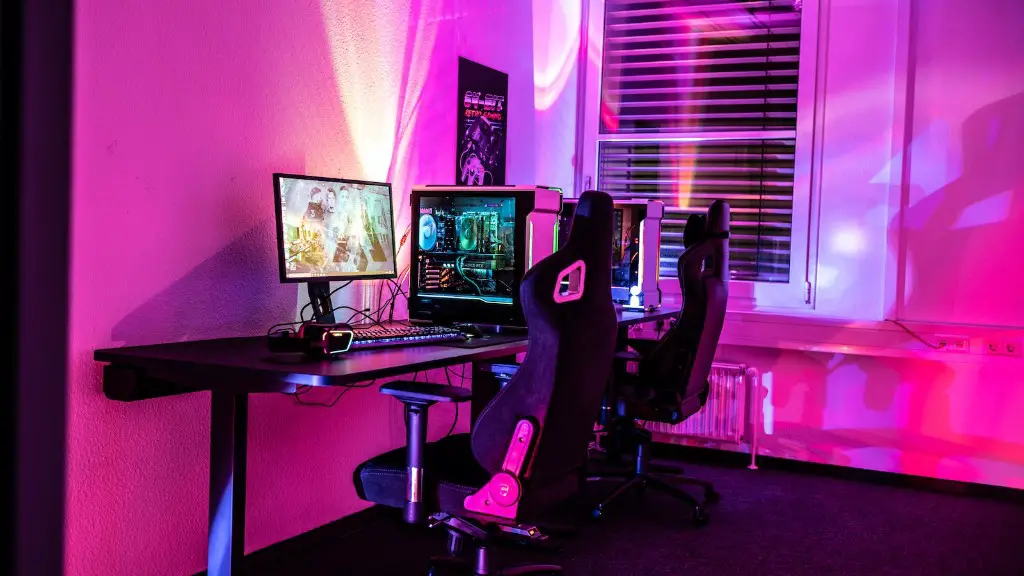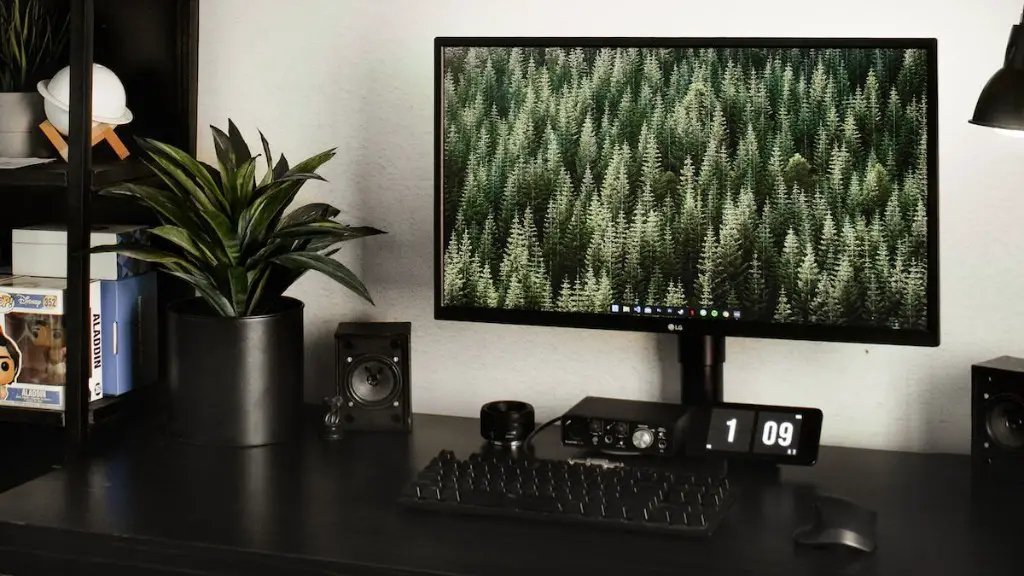To run the newest and most advanced games, a gaming PC needs to have the right hardware components. This includes the CPU, RAM, graphics card, storage, and more. A capable gaming PC must have a good processor, plenty of RAM, and a powerful video card. Additionally, it must also have compatible storage and a reliable cooling system. In this article, we’ll go over the recommended specifications for a gaming PC so you can ascertain if your current gaming PC is up to par or if you need to upgrade some of the components.
The Central Processing Unit (CPU) is the heart and soul of a gaming PC. It is what handles the calculations and processes in a game. Intel and AMD are the two major and most reliable CPU manufacturers. For most gamers, an Intel Core i5 or AMD Ryzen 5 processor is more than capable enough. However, for more intensive tasks such as streaming or playing games on multiple monitors, a Core i7 or Ryzen 7 will likely be required.
RAM, or Random Access Memory, is also a key component of a gaming PC. RAM is what allows your programs and games to be able to function without lag and without hiccups. 8GB of RAM is a good benchmark for most gamers. However, for more intensive tasks, 16GB will likely be recommended. It is also worth noting that you should opt for faster RAM as this will lead to improved performance in games and computing tasks.
When it comes to a gaming PC, the most important component is the graphics card. This is what is responsible for rendering the visuals of games. Depending on the type of games you play, your graphics card requirements will vary. AMD and NVIDIA are both reputable brands, and there is a wide range of graphics cards ranging from the budget-friendly to the high-end. For most gamers, a mid-tier card like AMD’s RX 580 or NVIDIA’s RTX 2060 will be enough to satisfy their needs.
Storage is another important component of a gaming PC. If you are serious about gaming, then a quality Solid State Drive (SSD) is a must. An SSD will provide faster loading times and improved performance overall. 256GB is the minimum recommended capacity, but if you can afford it, then a 1TB drive would be even better. You can also add a Hard Disk Drive (HDD) for additional storage space as they are much cheaper than SSDs.
It is also important to have a good cooling system for your gaming PC. This is to ensure your components do not overheat and damage your system. An all-in-one liquid CPU cooler is recommended for most gaming PCs, as it will provide sufficient cooling for most components. However, if you are looking to overclock your CPU or graphics card, then you will likely need a more advanced cooling system.
Finally, a gaming PC must have a good power supply unit (PSU). Low quality or insufficient power supply units can lead to instability and hardware damage. For most mid-tier gaming PCs, a good 500W PSU should be more than sufficient. However, for higher-end PCs, you may need to opt for an 800W or 1000W PSU.
What Is The Best CPU For A Gaming PC?
When choosing the best CPU for your gaming PC, there are a few factors you need to consider. As mentioned earlier, Intel and AMD are the two major players when it comes to consumer-level processors. Intel is generally considered to have the best performance, while AMD processors tend to offer more cores and threads. Ultimately, it depends on your budget and the type of games you play. An Intel Core i5 or i7 is generally sufficient for most users, while AMD’s mid-tier Ryzen processors are also great options.
What Is The Best Graphics Card For A Gaming PC?
When it comes to finding the best graphics card for a gaming PC, the type of games you play and the graphical settings you intend to use will be the two main factors. Generally speaking, AMD offers better value for money, while NVIDIA tends to have the best performance. The mid-tier offerings from both AMD and NVIDIA are more than capable of running most games on high settings. However, for more intensive games, you’ll need to opt for one of the higher-end cards.
Is 16GB Of RAM Enough?
Yes, 16GB of RAM should be more than enough for most gamers. This much RAM will provide enough headroom for most intensive tasks such as streaming or playing games on multiple monitors. 8GB is also sufficient, but 16GB is the current recommended amount for most gamers.
What Kind Of Storage Is Best For A Gaming PC?
Solid State Drives (SSDs) are the best choice when it comes to storage for a gaming PC. They are much faster and more reliable than Hard Disk Drives (HDDs), and they also consume less power. For most gamers, a 256GB SSD should be more than enough, but if you can afford it, a 1TB drive is recommended.
Do I Need A High-End PSU?
For most gamers, a mid-tier 500W PSU is more than enough. However, if you plan to overclock your CPU or graphics card, then you may need a more powerful PSU. In that case, an 800W or 1000W PSU may be recommended. It is also important to get a PSU from a reputable brand in order to ensure reliable performance and sustainability.
What Other Components Do I Need?
Aside from the components mentioned in this article, there are a few other components that you should consider for your gaming PC. These include a good monitor, a reliable mouse and keyboard, and a comfortable headset. Additionally, if you plan to overclock any of your components, you may also need a motherboard with good overclocking support.

